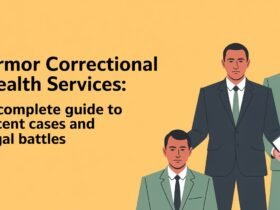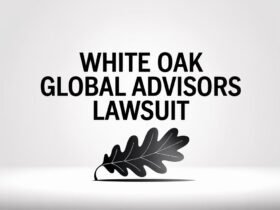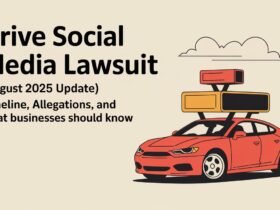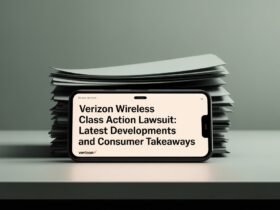Introduction
The phrase “kennedy funding lawsuit” has become a recurring headline in legal, financial, and real estate circles over the past decade. Kennedy Funding Financial LLC, often referred to simply as Kennedy Funding, is a New Jersey-based private lender specializing in bridge loans and short-term financing. The firm has been the subject of repeated lawsuits, allegations of misrepresentation, and highly contested court battles. The latest development in 2025 centers around the case of Quimera Holding Group SAC v. Kennedy Funding Financial LLC, which reached the United States Court of Appeals for the Third Circuit. This ruling not only reshaped the trajectory of the dispute but also revived broader debates about the company’s lending practices, contract drafting, and the treatment of borrowers under New Jersey law.
This article will explore the latest Quimera update, past lawsuits involving Kennedy Funding, the allegations typically raised against the company, and the implications of the court’s decision for future borrowers and lenders.
Who Is Kennedy Funding?
Kennedy Funding is a direct private lender that positions itself as a fast and flexible alternative to traditional bank financing. The company often steps into high-risk or time-sensitive deals where banks are unwilling to lend, especially in real estate development, distressed property acquisitions, or international projects. Unlike long underwriting timelines at conventional banks, Kennedy Funding is known for issuing loan commitments quickly. However, the very features that attract borrowers—speed, bridge loans, and willingness to work with unconventional collateral—have also triggered disputes.
Borrowers have accused Kennedy Funding of issuing loan commitments with vague terms, shifting collateral requirements during negotiations, and retaining large appraisal or commitment fees even when deals never close. This tension between lender protection and borrower expectations sits at the heart of nearly every kennedy funding lawsuit.
The Quimera Case: Background and Timeline
The most prominent kennedy funding lawsuit in 2025 is the Quimera Holding Group SAC v. Kennedy Funding Financial LLC. The dispute began back in 2017 when Quimera, a Peruvian borrower, entered into a loan commitment with Kennedy Funding. The commitment referenced a list of collateral properties, but the schedule attached to the contract was left blank.
Over the following months, Quimera and Kennedy Funding exchanged emails narrowing the collateral to nine properties. Quimera even paid approximately $85,000 in appraisal fees to facilitate the process. By January 2018, Kennedy Funding issued a loan offer of $32.6 million based on those nine properties. However, when certain properties were removed from the collateral pool, the revised offer dropped to $23 million—below the 55% loan-to-value threshold. The deal collapsed, and the appraisal fees were not refunded.
In 2020, Quimera filed suit alleging breach of contract, fraud, negligent misrepresentation, unjust enrichment, and violations of the New Jersey Consumer Fraud Act (NJCFA). Initially, the district court sided with Quimera, granting summary judgment in its favor. But in February 2025, the Third Circuit Court of Appeals vacated that judgment, ruling that the contract ambiguity and extrinsic evidence created factual disputes requiring further proceedings.
Key Legal Issues in the Quimera Lawsuit
The Quimera decision highlights several recurring legal issues in kennedy funding lawsuits:
- Contract Ambiguity: When loan documents reference collateral but fail to specify it clearly, courts must determine whether external emails, drafts, or communications can resolve the ambiguity.
- Borrower vs. Lender Control: Who gets the final say in selecting collateral? Quimera claimed borrower control, while Kennedy Funding argued it had discretion. The courts concluded this dispute must go to trial.
- Fee Disputes: Appraisal and commitment fees are a major source of tension. Borrowers argue they are unfairly retained when loans fail to close, while Kennedy Funding defends them as standard non-refundable costs.
- Consumer Protection Law: The NJCFA adds another layer, allowing borrowers to allege deceptive lending practices. If revived on remand, this claim could expose Kennedy Funding to treble damages and attorney’s fees.
Past Lawsuits and Patterns
The Quimera case is not the first kennedy funding lawsuit to attract attention. Over the years, several similar disputes have emerged:
- Stone Harbor Estates v. Kennedy Funding (2023): A New Jersey appellate case involving disputes over valuation reports and collateral adjustments. Like Quimera, it underscored the importance of clarity in loan commitments.
- Professional Cleaning & Innovative Building Services v. Kennedy Funding (2010): A federal case addressing allegations of misrepresentation and fraud. Although resolved years ago, it laid the groundwork for how courts interpret reliance on lender statements.
- Other Borrower Complaints: Numerous smaller cases and arbitration disputes have raised similar themes—unexpected collateral substitutions, appraisal fees, and promises that allegedly shift during underwriting.
These past rulings show a consistent pattern: Kennedy Funding frequently prevails on certain claims, but courts often allow at least some borrower allegations to proceed, ensuring that disputes remain contentious and costly.
Allegations Against Kennedy Funding
Across multiple lawsuits, borrowers have leveled several core allegations:
- Misrepresentation: Borrowers claim Kennedy Funding makes initial promises about loan size, terms, or collateral acceptance, only to change positions later.
- Predatory Fees: Large non-refundable fees, such as the $85,000 appraisal payment in Quimera, are often central to disputes.
- Breach of Commitment: Borrowers argue that once they sign a commitment and pay fees, Kennedy Funding should honor its terms.
- Consumer Fraud Act Violations: New Jersey’s consumer protection statute provides an avenue for borrowers to claim deceptive practices, potentially magnifying damages.
Kennedy Funding, however, strongly contests these allegations, positioning itself as a lender that takes on risky deals others avoid. The firm argues that borrowers often fail to meet the strict requirements of high-risk financing and that contracts explicitly allow flexibility in appraisal and collateral review.
What the Quimera Decision Means for Borrowers and Lenders
The Third Circuit’s 2025 decision is significant for both borrowers and private lenders. By vacating the lower court’s summary judgment, the appellate court emphasized that ambiguous loan contracts cannot be resolved on paper alone when substantial extrinsic evidence exists. This means more kennedy funding lawsuits may go to trial rather than being dismissed early.
For borrowers, the ruling is encouraging because it validates the importance of preserving emails, drafts, and negotiations as evidence. For lenders, it signals that imprecise drafting or incomplete schedules can open the door to costly litigation.
In practical terms, lenders may need to tighten their loan documentation, while borrowers should scrutinize collateral provisions and fee refund policies more closely before signing commitments.
Implications for the Future
Looking ahead, the Quimera case is likely to influence not just Kennedy Funding but the broader private lending industry. The revival of fraud and NJCFA claims on remand could heighten litigation risks for lenders across the country. Additionally, borrowers may feel emboldened to challenge appraisal fees and alleged misrepresentations.
The case also serves as a reminder that bridge loan commitments, often rushed in high-stakes deals, require as much precision and clarity as traditional bank financing. Ambiguity may speed up initial agreements but can slow down or derail projects years later through protracted litigation.
Frequently Asked Questions (FAQs)
What is the Kennedy Funding lawsuit about?
It refers to ongoing legal disputes involving Kennedy Funding Financial LLC, with the latest being the Quimera case over collateral, fees, and alleged misrepresentations.
Did Kennedy Funding lose the case?
Not exactly. The district court originally ruled against Kennedy Funding, but in 2025 the Third Circuit vacated that ruling and sent the case back for further proceedings.
Can borrowers recover fees if a loan never closes?
That depends on the contract. Courts examine whether fees were clearly non-refundable and whether the lender acted in good faith.
Are there class actions against Kennedy Funding?
As of 2025, lawsuits are handled on a case-by-case basis rather than as class actions.
Why is New Jersey law important?
Most Kennedy Funding contracts contain New Jersey choice-of-law clauses, meaning disputes are often decided under New Jersey statutes and case law.
Conclusion
The kennedy funding lawsuit saga demonstrates how private lending, though fast and flexible, carries inherent risks. The Quimera case in 2025 illustrates the consequences of contract ambiguity, fee disputes, and evolving collateral requirements. While the ultimate outcome remains unresolved, the appellate ruling ensures that borrowers and lenders alike must prepare for fact-intensive trials rather than quick dismissals.
For borrowers, the takeaway is clear: scrutinize commitments, insist on precise collateral schedules, and retain all communications. For lenders, the lesson is to draft airtight agreements and anticipate that courts will examine extrinsic evidence when disputes arise.
As the Quimera case proceeds on remand, the broader industry will be watching closely. The next phase of the kennedy funding lawsuit could redefine not only Kennedy Funding’s business model but also best practices across the private lending landscape.
Also read more interesting topics at mgtimes.co.uk.






Leave a Reply